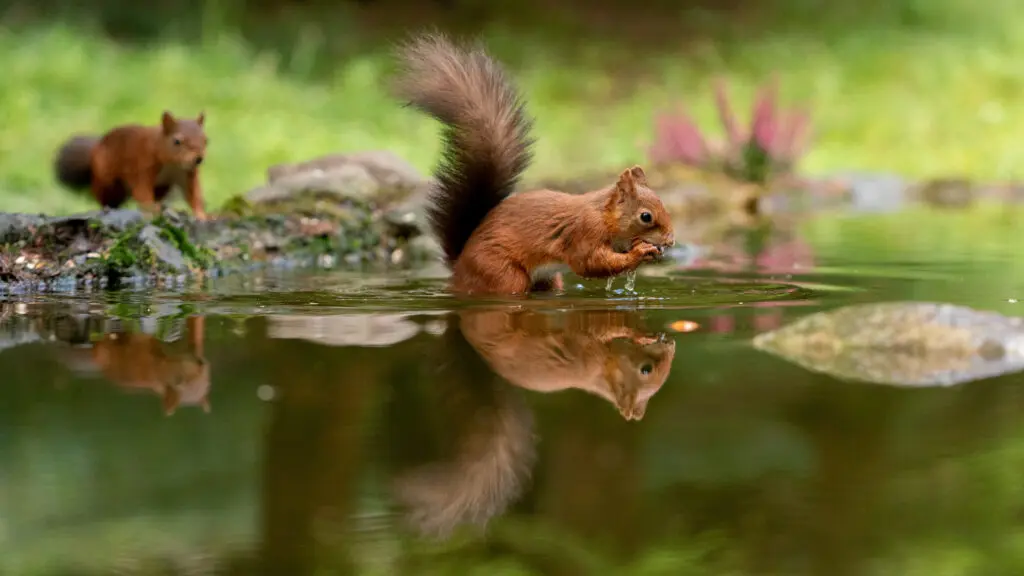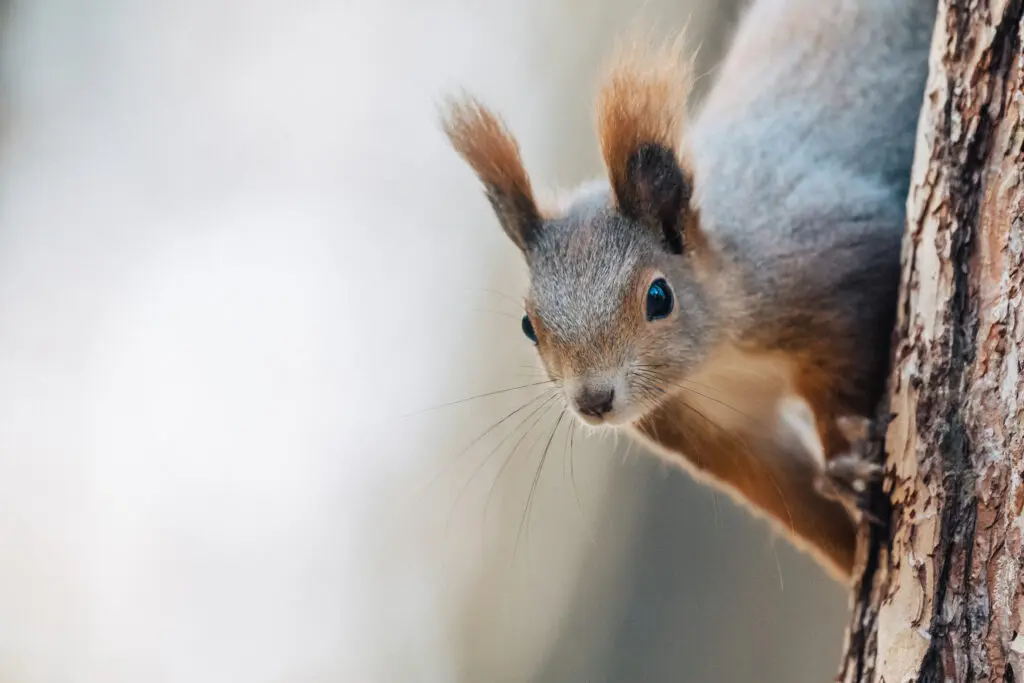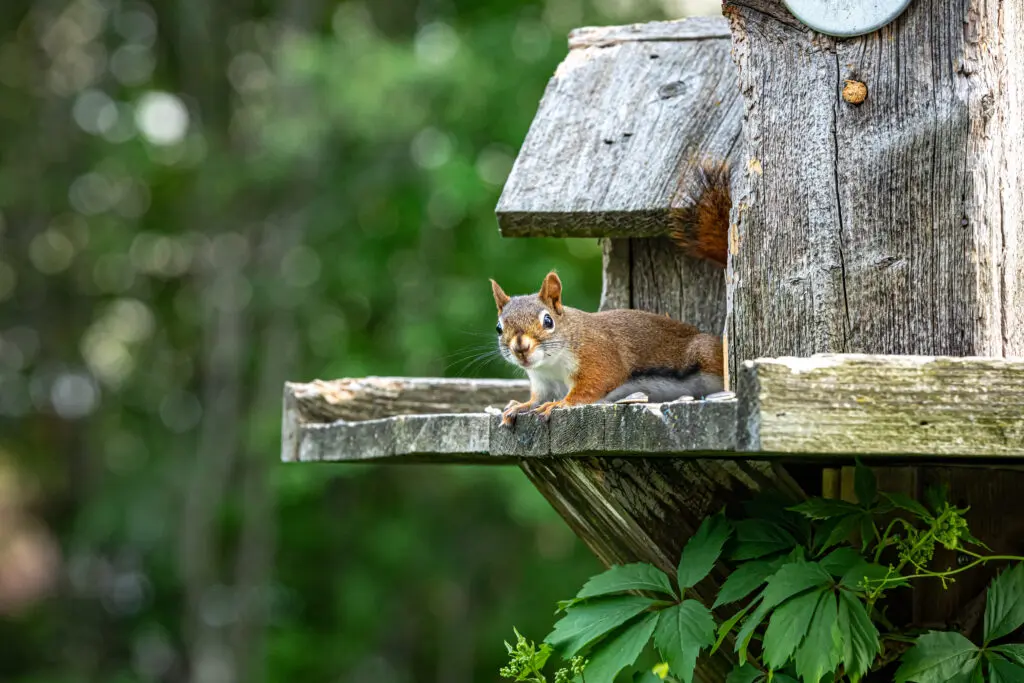It’s Red Squirrel awareness week!
WightFibre is proud to be in its 3rd year of sponsoring a PhD studentship focused on the conservation of the Isle of Wight’s red squirrel population. This project, run in collaboration with Bournemouth University and the Wight Squirrel Project, aims to secure the long-term survival of this endangered species. Through a combination of cutting-edge research and fieldwork, the project will assess the health and viability of the Isle of Wight’s red squirrel population, exploring challenges such as human interference, inbreeding, and climate change.

Why WightFibre is Involved
As a local Island business, WightFibre understands the importance of preserving the Isle of Wight’s unique natural heritage and is deeply committed to supporting the Isle of Wight’s environment and community. The Island’s red squirrels are one of its most recognisable natural treasures, and ensuring their survival is a responsibility we take seriously. This investment in research will help ensure that the red squirrel population continues to thrive for future generations.
Importance of Red Squirrels on the Isle of Wight
The Isle of Wight’s red squirrels are not only a beloved symbol of the Island’s natural beauty, but they also hold significant conservation value. The Island’s population of around 3,000 squirrels is one of the last strongholds of the species in Southern England, with the Isle of Wight’s isolation providing valuable protection from the invasive grey squirrel, which has been a major factor in the decline of red squirrel populations across the mainland UK.
Unlike their mainland counterparts, Isle of Wight red squirrels have retained their genetic uniqueness, forming what scientists call an Evolutionarily Significant Unit (ESU). This means that their genetic make-up is distinct, and preserving this diversity is crucial for the species’ survival. However, research has also shown that the Island’s red squirrel population has low genetic diversity and some population fragmentation, which could become a serious concern for their long-term viability.
This studentship helps to assess the risks posed by inbreeding, which can lead to reduced fitness and increased chances of extinction. The use of advanced genomic tools will allow researchers to map the genetic diversity of the population and calculate the extent of inbreeding, enabling more targeted conservation strategies. Understanding these dynamics is critical for ensuring that the population remains resilient against environmental challenges and disease.

Research Focus and Methodology
The PhD project, led by Dr Emilie Hardouin from Bournemouth University, tackles several key challenges facing the red squirrels. The research investigates the impact of human feeding on squirrel populations. Human-provided food, while helpful during scarce seasons, could be affecting the squirrels’ natural foraging behaviour and nutrition balance. The project will analyse squirrel hair samples to determine the proportion of natural versus human-provided food in their diets, providing crucial insight into how this impacts their overall health and population dynamics.
Another key focus of the project is assessing the population’s ability to survive in the long term. Genomic data will be collected to evaluate genetic diversity, a critical factor in determining the population’s resilience to diseases, environmental changes, and other threats. By sequencing DNA from the Isle of Wight’s red squirrels, researchers aim to understand how genetically diverse the population is, which is essential for informing future conservation efforts
The project will also use population viability analysis (PVA) to simulate different future scenarios, such as climate change and habitat loss, and predict their potential impact on the red squirrel population. This will allow conservationists to take proactive measures to mitigate these risks.

The Importance of Squirrel Conservation
The conservation of red squirrels on the Isle of Wight is vital not only for the survival of the species but also for maintaining the Island’s ecological balance. Red squirrels play a significant role in the ecosystem, contributing to forest regeneration through their foraging habits, which disperse seeds across the landscape. Furthermore, their status as a flagship species helps raise awareness about broader conservation issues. More public engagement and awareness in protecting natural habitats will also benefit a wide range of other wildlife in the process.
While scientific research is a key part of conserving the Isle of Wight’s red squirrels, public involvement is also crucial. One way to help is by supporting local conservation initiatives such as the Wight Squirrel Project. Simple actions like refraining from feeding the squirrels, preserving woodland areas, and spreading awareness can have a positive impact on their survival. By investing in projects like this, WightFibre aims to help secure a future for the Isle of Wight’s red squirrels. Together, with community support and cutting-edge research, we can ensure these beloved creatures continue to thrive on the Island for generations to come, because we care.
To find out more click on the link below that takes you to a video by Dani Connor which goes over the topic in more detail:






